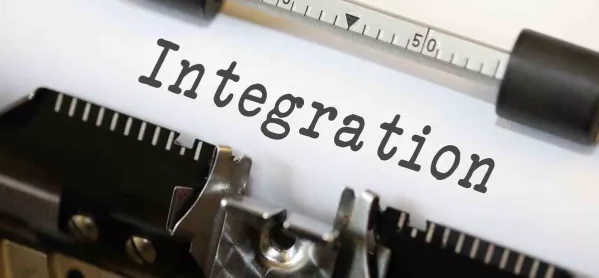Muslim faith schools should be paired up with Christian or Jewish schools to help pupils mix with children from different backgrounds, a think tank has suggested.
Faith schools and other state schools in areas which are highly segregated by religions, ethnicity or social class should be made to “twin” with other schools in different settings, according to the British Future group.
It has also called for the 50 per cent faith cap on new free schools - which allows them to select up to half their intake on the basis of religion - to be applied to all state schools.
The government recently announced that it was retaining the faith cap on new free schools but also making funding available to support the creation of new voluntary aided schools which can select all their pupils on the basis of faith.
British Future’s recommendations are made in its submission to the government’s consultation on its Integrated Communities Strategy green paper.
The group says activities to ensure that pupils mix with children from different backgrounds should be mandatory in all state schools.
It adds: “That could include ‘twinning’ or ‘linking’ of schools - meaning a Muslim faith school, for example, would have to forge links with a local Christian or Jewish school so their children could mix and get to know each other.”
The think-tank says a poll found that three-quarters of the public thinks more mixing among children in schools would be good for integration.
British Future’s director of strategy Jill Rutter said: “Schools have mainly been an integration success story in Britain. Most people think that children from different backgrounds mixing in school has done more to improve race relations than anything else in recent years. But that isn’t always happening and we still see pockets of segregation.
“It’s not right that some pupils don’t get a chance to meet children from a different background. It’s in schools where the government has the best chance of encouraging social contact and promoting better integration.”
The report suggests ‘twinning’ could involve linking classes; sharing facilities such as playing fields or performing arts spaces; or shared sixth form teaching. It could also involved bringing pupils from different schools together to work on a volunteering project.
A scheme that started in Bradford in 2001 to link together schools serving different communities within the district has now become a national programme involving 18,000 pupils.
The Linking Network’s co-director Meg Henry, said: “Schools linking is a proven way to help build relationships between children from different backgrounds, developing their skills and breaking down barriers from an early age. Locally-owned programmes, with national backing, promote social mixing in a way that’s sustainable in the long term. The linking model works - expanding it nationally could make a real difference to integration.”
The British Future paper also says that home-educated children should have to take part in integration activities.
“We have concerns that some home educated children are not receiving a broad and balanced education, and also believe that home education is insufficiently regulated,” it argues.





